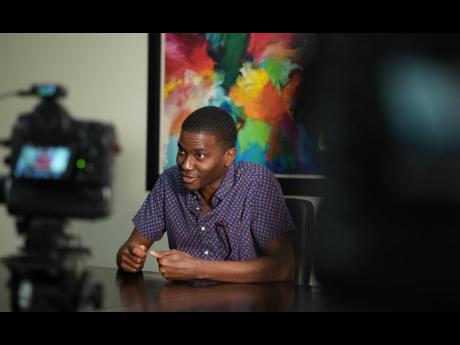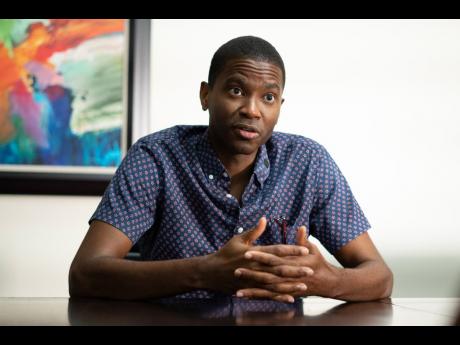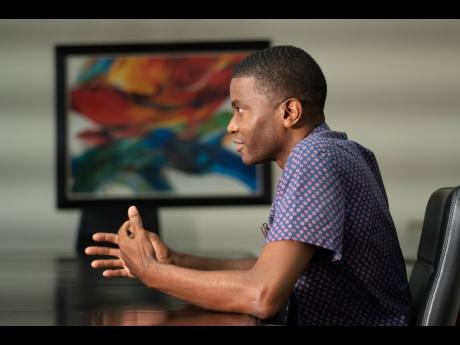Haiti’s instability a threat to the entire Caribbean region, says Grenadian prime minister
It would not be the first, second, or third time that the Caribbean Community (CARICOM) has attempted to help the hemisphere’s poorest nation get a grip on its internal problems, which are reaping murder, mayhem, and kidnappings, exposing Haiti as having the weakest governance structure across all the regional territories.
Jamaica rescued former Haitian President Jean-Bertrand Aristide on two occasions – the first when he was removed by a mini coup d’etat and again when the United States withdrew his security and he was forced to flee, landing in the Central African Republic, before then parliamentarian Sharon Haye Webster was sent by then Prime Minister P. J. Patterson to take him here.
Over the years, Haiti’s presidents have been deposed and fled, as are its citizens, to various CARICOM territories.
The Bahamas, Jamaica, Cuba, and smaller territories have rescued migrants seeking an escape from social, economic, or political turbidity which has left the former colony of France in shambles. France, like most other European colonizers, was enriched by the proceeds of enslavement and forced capture of the country. Historians have argued that France owes Haiti billions of dollars in destabilisation fees collected in anger at the territory for daring to become independent of its colonizer.
Now, as images emerge from the crime-ridden, gang-infested country, CARICOM is once again seeking to make a difference. It has tapped three former prime ministers for a fact finding mission to the seemingly ungovernable country that is killing and burning bodies like garbage.
Last year Haitian President Jovenel Moise was murdered, and two weeks ago two journalists were murdered and their bodies burned as the daily demonstrations continue across the nation.
CARICOM GOING TO HAITI … AGAIN
In an interview with Grenada’s Prime Minister Dickon Mitchell recently, he told The Sunday Gleaner that the regional body is extremely concerned about Haiti.
According to him, the years-long crises in governance in the troubled nation require strident regional advocacy as the continuing instability in that country is threatening the security of the Caribbean, especially The Bahamas and Jamaica, which can expect more refugees if the volatility continues.
“As part of CARICOM we have had several meetings with Prime Minister Ariel Henry. We recognise there are serious security challenges in Haiti, The Bahamas in particular, and I want to give credit to the prime minister and people of The Bahamas, because they actually have an embassy in Haiti, and as you may be aware, a lot of migrants, when they leave Haiti, they end up in The Bahamas or Cuba,” said PM Mitchell.
Many Haitians have also sought refuge in Jamaica, but after a court ruling several years ago that determined that they were economic refugees, scores were returned to the country that shares border with the Dominican Republic. That country is also building a border wall between the nations to keep migrants out.
In addition to the governance disasters, Haiti has been hit with various natural disasters. The 2010 earthquake, which killed more than 300,000; hurricanes and flooding; cholera, drought, and damage from rising temperatures have devastated the country that has been stripped of most of its foliage and trees through forced deforestation for coal.
Mitchell disclosed that three former prime ministers have agreed to serve as special envoy of CARICOM to Haiti, and the mission will also include individuals from Dominica and St Lucia who speak French Creole.
“The challenges that Haiti faces are rooted in some of the same issues that have been raised before, which is the systematic behaviour by France and other countries to impoverish and punish Haiti over its right to self-determination. Until and unless there is an open acknowledgement of that and deliberate action to correct that, Haiti is obviously going to be at a disadvantage,” declared the Grenadian prime minister.
He said the assumption that the problem was domestic only was a false sense of the reality of what is happening in the country.
“In my view, to address the poverty situation in Haiti, there has to be sustained investment from the international community and from the money that Haiti has had to pay to France. It should be repaid, with interest. There are lots of crimes people talk about, but as far as I am concerned, that’s one of the greatest crimes against humanity that has ever occurred,” Mitchell stated.
Until and unless those issues are addressed by the international community, he said they have no moral authority to judge Haiti.
“When you look at the United Nations and what has happened with cholera and all that, a lot of these institutions have lost their credibility when it comes to Haiti in particular. And that makes the challenge more difficult … . At least from the Haitian community, credibility might come through CARICOM. We need to use that credibility to really advocate for and on behalf of our brothers and sisters in Haiti,” he stated.
Haiti’s problems are long known, well documented, but seemingly difficult to solve. The country is somewhat distanced from the rest of the region because it is French speaking, but Haitian Creole was nationalised by former president Aristide. During aid efforts after the devastating 2010 earthquake, officials from St Lucia and Dominica were best able to communicate with the population.
Mitchell expressed anger at the position taken by the Dominican Republic to deny nationality to Haitians living and working there. Generations of Haitians are now stateless after working in that country and having families there.
Mitchell said it was straight racism.
“That again is simple, and it’s racist. And those are the things for which we need to advocate in 2022. You have countries that are still systematically blacklisting Haiti simply because of race and ingrained institutional biases against the Haitian people,” he explained.
The rest of the Caribbean, he said, was not immune from the issues affecting Haiti. He drew on the old saying that “when your neighbour’s house is on fire, you should watch yours”, adding that it “does not prevent some of the powers-that-be in the English and Spanish-speaking Caribbean from treating us the same way.”
MORE YOUNG PROFESSIONALS SHOULD GET INVOLVED IN PUBLIC SERVICE
Observing the migration trend to greener pastures, PM Mitchell wants more young professionals to enter the public sector and offer their service in their respective islands.
According to him, more young persons who have been successful in business and other areas of their professional life should bring their expertise, new energy, and ideas to the public sector, which is the fulcrum of government activity.
“Take Jamaica, for example. The Jamaicans who are well known and are stars in the world are young Jamaicans. No disrespect to the senior Jamaicans, but your track stars are not in their 60s. The music stars, they would have had long careers and eventually continue into their 50s or 60s, but they started when they were young. So if you ask who are some of the most famous Jamaican personalities, certainly from a world-renowned status perspective, you are not going to find people in their 60s, except Bob Marley,” reasoned Mitchell, who was in Jamaica recently for the People’s National Party’s 84th Annual Conference.
“So it is a message we must take into public life as well. If they are good enough for music, art, entertainment, sports, why aren’t they good enough for public life and politics?”
As if expecting to be criticised, the 44-year-old said for those who will question “Who is this little boy making these statements?”, the region may well need many more little boys and girls ready to make a difference.
Lack of opportunities for growth, Mitchell said, has forced many of the Caribbean region’s brightest and best to head to Europe and North America, denying their homelands their energies and boldness to tackle new frontiers. Jamaican nurses and teachers are among the largest group of professionals who have left in search of greener pastures in the United States and United Kingdom.
Mitchell argued that the education system of the countries colonised by Britain was so designed to provide a conveyor belt, which they use frequently.
ADDING HIS VOICE TO THE REPUBLIC ROUTE
Prime Minister Dickon Mitchell also added his voice to talks of some countries moving away from the British monarchy as head of state. He said maintenance of the top-heavy power structure was not advantageous to young people in his country, but he wants Grenada’s head of state to be directly elected.
“I support it. I go further. I don’t really need a ceremonial head of state. I think our economies are too small to have two heads of state. To have an executive and a ceremonial head and then you still have a prime minister, in my view, is government that we just can’t afford,” he said.
“It doesn’t bring any benefit to the average citizen, so my view is that we should have a prime minister or president who is elected by the people, and that person becomes the head of state.”
He noted that countries like the United States that are far wealthier than the entire Caribbean region did not have a ceremonial head. The current top heaviness of the power structures was part of the relics inherited from the coloniser, he said.
“Certainly, if I had to go the republican route, it would not be to simply remove London as our head of state. It would actually involve getting rid of the office of the governor general as well. It is expensive to maintain. That is money, in my view, that could be spent educating a couple hundred Grenadians,” said Mitchell, adding that finding an efficient, cost-effective system of government that benefits the people is what he is about.
Prime Minister Mitchell said he is enjoying serving Grenadians, and though very demanding, there is a lot of educating that must be done. Politics, he said, has become transactional, stressing that votes should not be sold or given in exchange for something.
The education system, he said, should not be about an individual’s child receiving a scholarship, but should be a system that provides the same opportunities for all.
PM Mitchell does not consider himself to be a miracle worker and said it would take time to achieve his objectives, but the government was well on its way.
The Caribbean region, he said, has clearly demonstrated its resilience to various threats, and he urges countries to look inward more, develop their citizens, and prepare them for the future.



